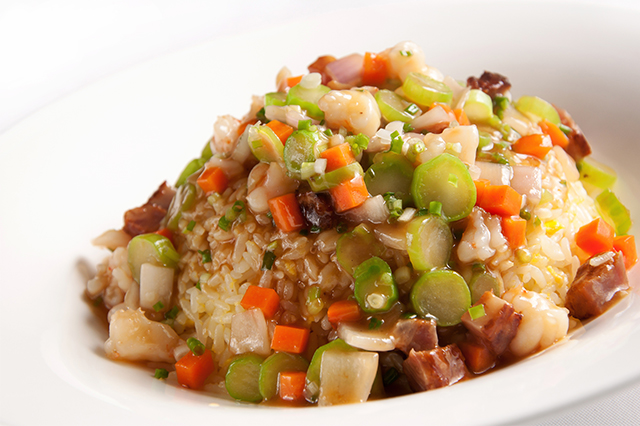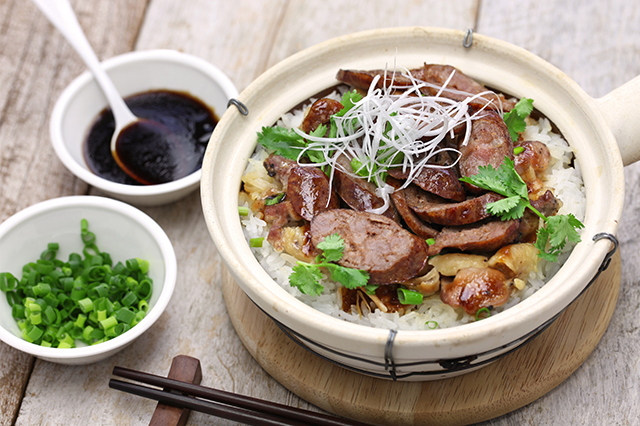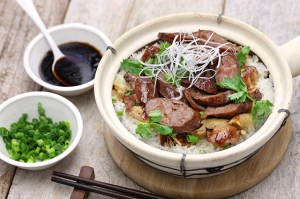When planning a trip or vacation to China around food, remember that China is a big country. Food can vary noticeably from village to village, but there are eight major Chinese food regions to remember: Cantonese, Sichuan, Anhui, Shandong, Fujian, Jiangsu, Hunan and Zhejiang.
Each of these Chinese regional cuisines is steeped in a history that plays a role in how they are prepared, with geography and available resources deeply impacting the final results, but they are all delicious in their own right.
Cantonese
When you think of authentic Chinese food – which is vastly different than American-Chinese food – you’re probably thinking of Cantonese cuisine. In general, chefs trained in Cantonese kitchens can find work throughout China and abroad.
The flavors of Cantonese food are balanced, relying heavily on ingredients selected and used at peak freshness. Despite the reliance on freshness, fresh herbs are rarely used in the dishes, though exceptions are made for garlic, chives and coriander leaves.
Beef, pork, chicken and seafood are staples in Cantonese cuisine. Both Guangdong Province and Hong Kong are home to excellent Cantonese seafood dishes served with rice. If you’re enjoying an Asian holiday in this region, don’t be surprised to find chicken feet, offal, duck’s tongue, snail, anteater or snake in your dish as well.
A number of sauces are popular in the region, such as plum sauce (sweet and sour), hoisin (sweet and salty) and oyster sauce (sweet, salty and a little “oystery”).
Sichuan
Even if you’ve never been to China, the name Sichuan probably rings a bell. Known for its hot and spicy flavors, this Chinese food region has a reputation for variation in seasoning and cooking methods.
The intense flavors from Sichuan Province – in contrast to Cantonese cuisine – rely on Sichuan pepper, black pepper, chili, broad bean chili paste, shallots, ginger and garlic.
Some of the most famous dishes are Kung Pao chicken, diced chicken with dry red pepper and peanuts; Fuqi feipian, thinly sliced beef seasoned with chili oil; and Sichuan hot pot, a tongue-numbing spicy dish. If you get the hot pot, be prepared to sample sea cucumber and unusual meats.
Anhui
The landlocked province of Anhui provides the wildest of Chinese regional cuisine, as locals forage the mountainsides for herbs, berries, fungi and game. Anyone whose Asia vacation takes them to this region will notice the lack of frying and stir-frying, as locals tend to favor stews and braised meats.
Local farms produce bayberry, tea leaves, bamboo shoots and dates, while wild mountain herbs are selected and added to dishes for both aroma and medicinal effects.
If you’re feeling bold or in need of protein, steamed stone frog is one of the several famous regional dishes. For those lighter of heart, there is Luzhou roast duck, Li Hongzhang stew and egg dumplings.

Shandon
Found along the northeast coast of China, Shandon cuisine, also known as Lu cuisine, is characterized by flash-fried seafood and vegetable dishes that aren’t too oily.
Like in Cantonese cooking, Shandon chefs focus on using spices and herbs to add subtle complexity to flavors rather than dominate the dish. Green onions, garlic, ginger and a dash of red pepper are often found in these dishes.
Shandon does not use some of the heavier sauces found in Cantonese cuisine, relying instead on vinegar and lots of salt.
Fujian
This Chinese food region is another that relies heavily on local delicacies, such as fish, turtles, indigenous mushrooms and bamboo shoots. Also known as Min cuisine or Hokkien cuisine, these dishes are often prepared to emphasize umami – the tantalizing fifth flavor for our palates.
If you’re a soup person, this province is a must-visit. Fresh seafood soups gain richness with exotic, wild ingredients brought down from the mountains.
Jiangsu
A wealthier region of China, Jiangsu errs on the side of gourmet, rather than partaking in the tradition of the hearty mountain peasant food you’ll find in Anhui province. Chefs create richly aromatic and refined meals with a heavy focus on presentation.
As a coastal province, it’s no surprise that seafood and sea vegetables play heavily into the region’s cuisine.
Hunan
Food from Hunan province is perhaps even hotter than Sichuan cuisine, but a little less so because they don’t incorporate the Sichuan peppercorns.
If you like Sichuan, it’s safe to say you’ll probably like Hunan cuisine. However, a mix of vinegar-chili and locally produced citrus allows dishes to evolve beyond simply spicy.
Zhejiang
Once home to the capital of the southern Song Dynasty, this region serves up elegant, refined dishes that feature quality ingredients. The cuisine shares a philosophy with Japanese food as they both incorporate raw or almost-raw ingredients.
There are three styles of Zhejiang cuisine: Ningbo is known for salty seafood dishes, fully utilizing brines during preparation; inland, Shaoxing uses less seafood, focusing instead on poultry and freshwater fish; and Hangzhou seems to include bamboo shoots in nearly every other dish.
Did we forget your favorite Chinese regional cuisine or dish? Tell us about it in the comments below!
Plan your next Asia vacation with AAA Travel.
This story was originally published in 2018 and has been updated.















